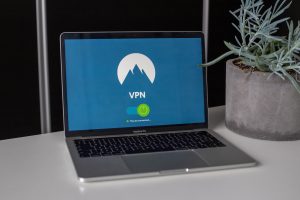Surprise! (Not Really) Public Interest in VPN Technology Surges
 We are all at least familiar with VPNs, right?
We are all at least familiar with VPNs, right?
A VPN – or, virtual private network – extends a private network across a public network. This then enables users to send and receive data across shared networks as if their devices were directly connected to a private network. It’s like a secure privacy tunnel plowing through a public internet/world. VPNs can also act as a proxy, allowing you to mask or change your location to wherever you want.
VPNs were developed to allow remote users and branch offices to access corporate applications and resources – to tap into a private network from off-site. Various methods, from passwords to procedures, come into play to maintain security and prevent someone random from tapping in. Of course, other uses for VPNs soon presented themselves, including maintaining anonymity and getting around things like geo-restrictions and censored content.
Which brings us to the UK’s “porn ban” and — surprise, surprise — a surge in interest in VPN technology. Apparently, your Average Joe, whomever they may be, now seems to be getting interested in VPNs.
According to a recent report from The Independent UK, the UK’s ever-delayed-but-definitely-pending identity checks designed to minimize minor-aged persons from accessing adult content online have led to a surge in interest in technology that would allow people to bypass them. That means, at least in part, VPNs.
This comes as a surprise to no one.
Because VPNs can allow UK-based users to make it appear to websites that they are outside the country, via a VPN they then appear to be outside the jurisdiction of the pending law.
According to The Independent UK, critics claim the new rules are “disastrous” for people’s privacy and are fundamentally flawed due to the ease of which they can be circumvented. This is an interesting comment, as many people who support the law have stated that its intent is not to prevent adults or even older, tech savvy teens from accessing porn. Its intent is to prevent very young people — who presumably can’t figure out the whole VPN thing — from stumbling across content that is not intended for them in the first place.
The Independent UK reported that Google searches for VPNs tripled in the hours following the government’s announcement that the verification system would come into effect in July.
Some VPN services charge people to use them, but many offer free versions with data limits. This entire thing though means that anyone using a VPN when visiting adult websites affected by the porn ban can make it appear as if they are not in the UK and thus are not required to go through the identity checks.
I sincerely hope an entrepreneurial member of the adult industry has an established VPN service at the ready.
Image by Gem Fortune via Pexels.












